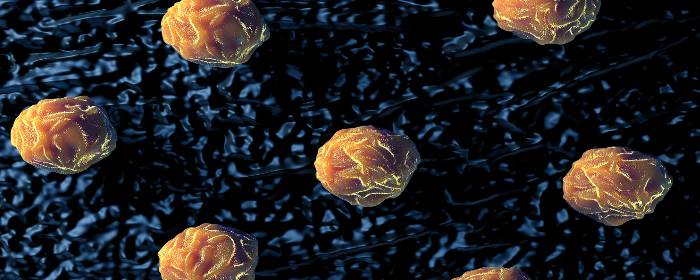
by admin | Dec 30, 2019 | Stem Cell Therapy, Adipose, Age Management, Mesenchymal Stem Cells, Stem Cell Research
Autologous stem cell treatments offer several advantages over other forms of stem cell treatment. In autologous stem cell treatment, a patient’s own stem cells are retrieved, processed, and injected back into the patient’s body. There is no need for a stem cell donor, and the entire procedure can take place in the same medical office. Since the patient’s own cells are used for an autologous stem cell treatment, there is no risk of disease transmission from a donor (because there is no donor) and no risk of rejection (because they are the patient’s own stem cells). Autologous stem cell treatments has some major benefits for the elderly.
Unfortunately, younger stem cells are better for
regenerative medicine than older stem cells are. Moreover, older people have
fewer stem cells that can be harvested than they did when they were younger. So
while autologous stem cell treatment is still advantageous, it becomes more difficult
to achieve as patients get older because their stem cells are fewer and less potent.
Making matters worse, older stem cells compete against more youthful stem
cells, making autologous stem cell treatments potentially even less effective
in older patients.
Fortunately, stem cell researchers are coming up with ways to make the most out of the stem cells that older patients still have. They still take a sample of tissue, such as fat, and harvest the stem cells contained within it. However, instead of injecting all stem cells from the sample (both older and youthful stem cells), researchers select and use only youthful stem cells. Furthermore, they make the treatments even more effective by injecting other substances (e.g. extracellular matrix) that help youthful stem cells survive, grow, and thrive.
To demonstrate the effectiveness of their approach,
researchers collected mesenchymal
stem cells from about a dozen older individuals aged 65 to 86 years old.
They then assorted the stem cells into different groups, separating youthful
from older stem cells. They then used special factors to help the youthful stem
cells grow, increasing the numbers by an impressive 17,000 times. So while only
8% of stem cells produced by older individuals are “youthful,” this laboratory
process increased those numbers to a point that they can be used for stem cell
treatments—even stored for future use!
The next phase of the research will be to inject these youthful stem cells into older patients and assess their effectiveness. However, even these preliminary results are exciting because they suggest that people of all ages can potentially benefit from autologous stem cell treatments, not just middle age and younger individuals.
Reference: Block, TJ et al. (2017). Restoring the quantity and quality of elderly human mesenchymal stem cells for autologous cell-based therapies. Stem Cell Research & Therapy. 2017 Oct 27;8(1):239.

by admin | Dec 18, 2019 | ALS, Exosomes, Mesenchymal Stem Cells, Stem Cell Research, Stem Cell Therapy
Amyotrophic lateral sclerosis or ALS is a devastating, progressive neurological disease. While the precise cause is unknown, ALS does destroy nerve cells in the spinal cord, which causes several debilitating symptoms. Often the first symptom of ALS is weakness in the hands or arms that is usually more pronounced on one side of the body. As more spinal cord nerve cells become dysfunctional and die, patients with ALS become weaker, their movements grow slower, and their muscles begin to atrophy (i.e. break down). At the same time, some muscles in the limbs become spastic, which means they are constantly in a contracted state. In later stages of ALS, patients have difficulty swallowing and breathing. Mesenchymal Stem Cell Treatment for ALS is a unique and new option.
The only drug to have any known survival benefit in ALS is riluzole. Patients who take riluzole live longer than those who do not; however, the drug does not improve function or meaningfully reduce symptoms. The only other approved ALS treatment, edaravone, may slow the rate at which ALS gets worse. However, neither of these drugs is a cure—far from it, in fact. Indeed, doctors and patients are left with virtually no effective treatment options for ALS.
Because ALS is caused by the destruction of nerve cells in the spinal cord, the regenerative properties of stem cells may offer a solution. The hypothesis is that stem cells—and exosomes collected from stem cells—can help protect, preserve, or even regenerate cells that are affected by ALS.
A flurry of research has been published over the last decade documenting the safety and possible effectiveness of mesenchymal stem cells for the treatment of ALS. In 2009, Deda et al. showed bone marrow stem cells injected into the spinal area were safe in patients with ALS, even showing that some patients had improvements in neuromuscular testing. The research groups of Karussis, Mazzini, Blanquer, and Baek showed similar safety results. Martinez et al. showed that stem cells derived from bone marrow could improve survival in patients with ALS. Rushkevich et al. showed that stem cell infusion improved the quality of life in patients with ALS.
While more work is clearly needed to determine the full effectiveness of stem cell treatment for ALS, the number of researchers working on this topic and the number of successful studies published in this area are reasons for hope. These clinical studies show that stem cell treatment for ALS is clearly safe and feasible. What is needed are larger clinical trials that specifically focus on the effectiveness of treatment, both in the near- and long-term.
Reference: Roberta Bonafede and Raffaella Mariotti. (2017). Stem cell mobilizers: ALS Pathogenesis and Therapeutic Approaches: The Role of Mesenchymal Stem Cells and Extracellular Vesicles. Frontiers in Cellular Neuroscience. 2017; 11:80.

by admin | Dec 5, 2019 | Crohn's Disease, Stem Cell Research, Stem Cell Therapy
Over the past few years, data has accumulated showing the promise for cell-based therapies to help in treating Inflammatory bowel disease with stem cells. Specifically, stem cells appear to offer the opportunity to overcome several weaknesses associated with conventional therapies that have targeted perianal Crohn’s disease.
Based on these positive results, scientists and healthcare providers have become more adamant about understanding the broader role stem cells could play in the treatment of all inflammatory bowel disease. A new review published in Current Gastroenterology Reports discusses this specific issue and offers insights into the direction of stem cell research as it relates to inflammatory bowel disease.
The authors of this review discuss data from over a dozen clinical trials that have already been conducted on the impact of stem cell therapies in Crohn’s disease. Thus far, much of the success of regenerative medicine for the treatment of Crohn’s disease has been for the specific treatment of perianal Crohn’s disease, which occurs when the digestive and gastrointestinal inflammation associated with Crohn’s disease extends to the anal area.
Given the frequency with which the lining of the intestine is inflamed in inflammatory bowel disease, including both perianal Crohn’s disease and non-perianal Crohn’s disease, research efforts are focusing more and more on how stem cells may be able to combat this type of luminal disease. The authors put forth suggestions for the types of information that researchers should aim to obtain if we are to adequately treat intraluminal disease with regenerative medicine.
The potential of stem cells to address inflammatory bowel disease that has been demonstrated so far provides hope that this type of strategy will help not only patients with perianal Crohn’s disease but those with other forms of inflammatory bowel disease as well. More research should help to determine if and how these therapies can be deployed to help this patient population.
Reference: Lightner, A.L. (2019). Stem cell therapies for inflammatory bowel disease. Current Gastroenterology Reports, 21(4), 16.

by admin | Dec 2, 2019 | ALS, Bone Marrow, Stem Cell Research, Stem Cell Therapy
Researchers have recently established that a hallmark of Amyotrophic Lateral Sclerosis (ALS) is endothelial cell degeneration that leads to vascular pathology. When this vascular pathology occurs, damage develops to the barrier between the blood and the central nervous system. Given this new understanding of the pathophysiology of ALS, researchers have begun looking at the potential of repairing this barrier as a strategy for treating the disease with bone marrow stem cells.
A recent study, published in Scientific Reports, addressed this issue by testing how human bone marrow cells may impact blood-spinal cord barrier repair by transplanting these cells in an ALS model. The researchers hypothesized that the cells should help to repair the barrier, reversing the damage accompanying ALS. They were also interested in whether this type of repair may improve not only the integrity of the barrier between the blood and central nervous system but also improve symptoms of ALS.
What the researchers found was that the human bone marrow cells differentiated into the type of endothelial cells that were needed for repair and successfully engrafted into the capillaries of the spinal cord in their model. Several specific observations led the scientists to conclude that these stem cells helped to effectively restore the barrier between the blood and the spinal cord.
The stem cells improved the integrity and survival of nervous system cells, including astrocytes and spinal cord motor neurons, preventing problematic changes in these cells that are associated with the breakdown of the blood-central nervous system barrier. Critically, the implantation of the stem cells also led to improvements in behaviors associated with ALS.
While there is still a lot of research to be done to establish whether bone marrow stem cells can help repair the blood-spinal cord barrier in patients with ALS, this study provides promising data. Given that there is no cure for ALS and limited treatment options, there is likely to be an emphasis on cell-based therapies for the disease. As more data become available, we will get a clearer picture as to if and how stem cells can help ALS patients.
Reference: Garbuzova-Davis,S. (2017). Endothelial and astrocytic support by human bone marrow stem cell grafts into symptomatic ALS mice towards blood-spinal cord barrier repair. Scientific Reports, 7(884).

by admin | Nov 27, 2019 | Crohn's Disease, Mesenchymal Stem Cells, Stem Cell Research, Stem Cell Therapy
Crohn’s disease, a form of chronic inflammatory bowel disease, affects an estimated 700,000 people in the United States, affecting men and women equally. While the disease is characterized by abnormal inflammation in the gastrointestinal and digestive tracts, some people with the illness develop perianal Crohn’s disease. In this case, the inflammation extends to areas around the anus. The precise proportion of Crohn’s disease patients who develop perianal Crohn’s disease is debated, but the need for better treatments for the condition is not. A new and unique treatment is the use of stem cells to treat Perianal Crohn’s Disease.
Unfortunately, though there are several drug and surgical interventions that have been developed to treat perianal Crohn’s disease, each of the available treatment options suffers critical limitations, including risks for adverse side effects. There is no available therapeutic approach that successfully achieves long-term remission.
Based on the need for – and lack of – more efficacious interventions for perianal Crohn’s disease and the ability of cell-based therapies to address similar types of disease, researchers have positioned that stem cell therapy may be a promising avenue for the relevant patient population. A recent review published in the Journal of Crohn’s and Colitis covers the research that has been conducted to address this possibility and the data that suggest that mesenchymal stem cells could provide a safe and effective way to treat perianal Crohn’s disease without the unwanted side effects associated with conventional treatment options.
In this review, the authors cover clinical trials on cell-based therapies for perianal Crohn’s disease, including phase 1, phase 2, and phase 3 randomized controlled trials. The authors consider the differences in outcomes between conventional treatments and cell-based therapies and offer suggestions for the direction of research into the use of stem cells for the treatment of perianal Crohn’s disease.
Reference: Lightner, A.L. & Faubion, W.A. (2017). Mesenchymal stem cell injections for the treatment of perianal Crohn’s disease: What we have accomplished and what we still need to. Journal of Crohn’s and Colitis, 11(10), 1267-1276.

by admin | Nov 21, 2019 | Chronic Pain, Mesenchymal Stem Cells, Stem Cell Research, Stem Cell Therapy
A review in the Journal of Stem Cell Research & Therapy has summarized an array of studies that demonstrate that a specific type of stem cell – the mesenchymal stem cell – may be beneficial as a therapeutic approach to chronic pain. The authors point to the huge burden of chronic pain. It is estimated that more than 115 people suffer from the condition, which is more than those who suffer from diabetes, stroke, cancer, and coronary heart disease combined. Many medical professionals are pondering the question of how stem cells may help those with chronic pain.
Chronic pain is also associated with significant losses in productivity. Given how extreme the burden of chronic pain has become, the National Institute of Medicine has suggested that finding effective ways to alleviate chronic pain should become a priority for the nation.
Regenerative medicine has offered an effective way to treat a variety of injuries and diseases, including some that are related to chronic pain. As the term “regenerative medicine” implies, much of the research into the clinical effects of stem cells have shown that they lead to beneficial outcomes by regenerating damaged tissue by replacing that tissue with new cells.
This new review looks at the potential of mesenchymal stem cells to specifically improve chronic pain through the ability of the cells to suppress inflammation. Given that inflammation is a common characteristic of conditions associated with chronic pain, a strategy that addresses this phenomenon could represent an effective way to help those with chronic pain that comes from things like degenerative disc disease and osteoarthritis.
The current approaches to chronic pain are limited in their ability to reduce or control pain, so there is a great need to develop more effective therapies. Research thus far into the potential impact of mesenchymal stem cells on chronic pain has provided promising results regarding effectiveness and safety. Specifically, these stem cells have not been associated with adverse side effects, they lead to the development and growth of healthy tissue, and they appear to provide pain relief. Future research will help to clarify the mechanisms by which mesenchymal stem cells may confer their benefits to those with chronic pain and provide new insights into how can best use these cells to help chronic pain sufferers.
Reference: Waterman, R.S. & Betancourt, A.M. (2011). Treating chronic pain with mesenchymal stem cells: A therapeutic approach worthy of continued investigation. Journal of Stem Cell Research & Therapy, S2, 1-5.







 St. Petersburg, Florida
St. Petersburg, Florida
